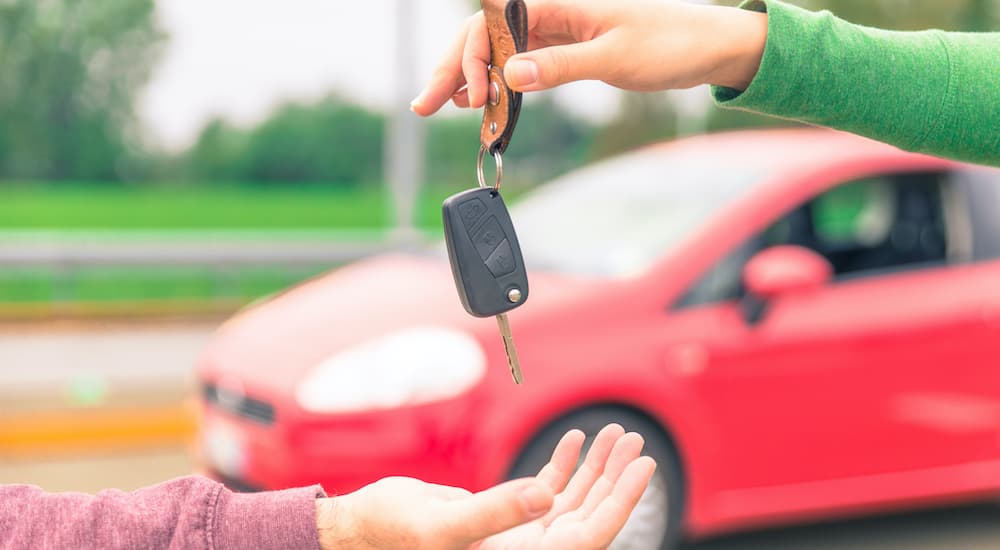If you’re looking to sell your car and you want to boost its value, then you might be tempted to assume that anything you add to your vehicle will add to what it’s worth. In reality, however, that’s simply not the case. Most of the time, mods you add won’t really make your vehicle worth more; in a worst-case scenario, they can actually decrease the value of your car. Right now, used vehicles are selling for historically high amounts, but that has more to do with the overall vehicle market than any particular mods being added to them.
Today, I’m going to take you through some of the most common and popular mods, add-ons, and other things you can do to your vehicle when you’re getting ready to sell it. Here’s the truth: the vast majority of these things won’t add anything to your car’s value – but there are a few things you can do to help out. It’s also important to consider your audience, so to speak, and who you’re looking to sell your vehicle to because that will impact what it’s worth. We’ll start there and then move on to some specific considerations.
Who’s Your Buyer? Dealership vs Person
Even though we’re primarily looking at what you can do to boost the value of your vehicle, the most important thing to start with is who you’re selling to. There are very different considerations at play if you’re selling your car to a dealership rather than a private buyer. In general, you’ll probably get the most money when selling to a person rather than a dealer, but you’re also opening yourself up to scams, safety risks, and a lot more hassle to get it done.
If you plan on selling your vehicle to a dealership, then you probably shouldn’t worry about anything other than giving your car a good wash and cleaning the inside as best as you can. While it’s true that issues with maintenance or repairs can lower the value of your vehicle, addressing those things now probably won’t increase the price enough to justify the cost to you. Most dealerships have service centers on-site or as a partner. This means they can have service and repairs done at a lower cost than you can – they’ll pay less to have the work done than you will, so it’s worth less to them than it is to you.
On the other hand, if you’re selling to a person, then anything you have done is something they don’t have to worry about. Fixing minor issues, putting on new tires, and other services can boost the value of your vehicle when you’re selling to someone rather than a dealer. This is all stuff they don’t have to do, so you’re saving them time, money, and hassle – all of that can be used by you when making a sale to justify the price you’re asking for. Just don’t go overboard; it’s still possible that the work you do isn’t worth enough to your buyer to offset the cost to you, so keep that in mind when making repairs.

Ways to Increase Value
Most aftermarket add-ons and mods really don’t add much to the value of a vehicle for a number of reasons (I’ll get into them below). That being said, the best thing you can do is add things that make the car more enjoyable to drive. Improving the infotainment system or sound system in your car can have a tangible value that increases how much you can sell it for since you can clearly show how good what you added is to a buyer. Similarly, if you have a vehicle with a niche focus or use, then anything you do that clearly improves upon that can help boost its value. For example, if you have a Jeep Wrangler or a similar vehicle that’s designed for going off-road, then aftermarket additions with that in mind can boost its value. Increasing a Wrangler’s water-fording ability, putting on all-terrain tires, and other trail-worthy modifications can all make it more valuable.
Some people will tell you that improving engine performance is always a way to boost the value of your vehicle, but that again really comes down to what you’re selling. Improving the air intake and exhaust for your engine can certainly boost performance, but will someone actually pay more for that if you’re selling a midsize sedan or small crossover SUV? If you’re selling a car that actually can benefit from those kinds of mods, then they might boost the value of your vehicle, but it’s going to come down to finding a buyer who cares about that kind of thing.
Things That Don’t Matter Much
The majority of things you can do to your car really don’t increase its resale value because most of them are things that were important to you, but only you. You might love that you painted your small SUV cherry red or a metallic tint that wasn’t factory available, but most buyers aren’t going to pay more for that. Similarly, additional lighting and other features might all look great, but you’ll need to find a very specific buyer who will actually pay more for that, rather than simply appreciate it but not enough to spend more.
Most of the aesthetic things you can do to your vehicle, including shiny rims, exterior lighting, and window tinting, are all fine and usually won’t decrease the value of your car, but they won’t add to it either. Other things like floor mats and seat covers can help by protecting the carpet in your vehicle and your original seats. They might not increase what you can sell your care for by themselves, but by protecting your interior, they can help it retain as much of its value as possible. Remember: just because you think something looks great doesn’t mean everyone else will – so it probably won’t be worth much to others.

Ways to Lower Value (Don’t Do These!)
In some instances, aftermarket add-ons and mods don’t just fail to add to your vehicle, but they can potentially take away from the value of your ride. For example, big lift kits that alter the suspension of your truck might fulfill some monster-truck fantasy for you, but it makes your pickup a much more niche-oriented truck. A lot of drivers won’t see much value in that and won’t pay more for it – in fact, they might pay less since you’ve potentially voided warranty coverage, reduced the stability of the truck, and they’ll need to pay if they want to remove it.
Similarly, adding flashy graphics and decals to your vehicle’s exterior can reduce its value if you can’t find a buyer who also really likes them. Many people will see decals as something they’ll want to remove, which costs time and money. So it’s possible to add things that you like only to discover that someone will pay less for them. There’s nothing wrong with customizing your vehicle to be what you want it to be – that’s half the fun of owning a car – just prioritize things differently if you’re really concerned about reselling your car.
At the end of the day, anything you add that someone else might want to remove is potentially harmful to the value of your vehicle. Similarly, anything that voids your warranty is going to be an issue – assuming you’re looking to sell your car while it’s still under the manufacturer’s warranty coverage. The best way to get the most money for your vehicle is to keep its value as high as possible while you own it: keep it clean, drive safely to avoid collisions, and follow the manufacturer’s service schedule. You can’t do much to make your car worth more, but you can do a lot to maintain its value while you own it.



